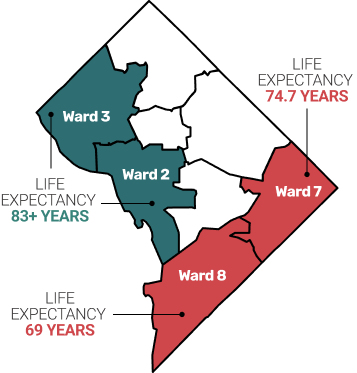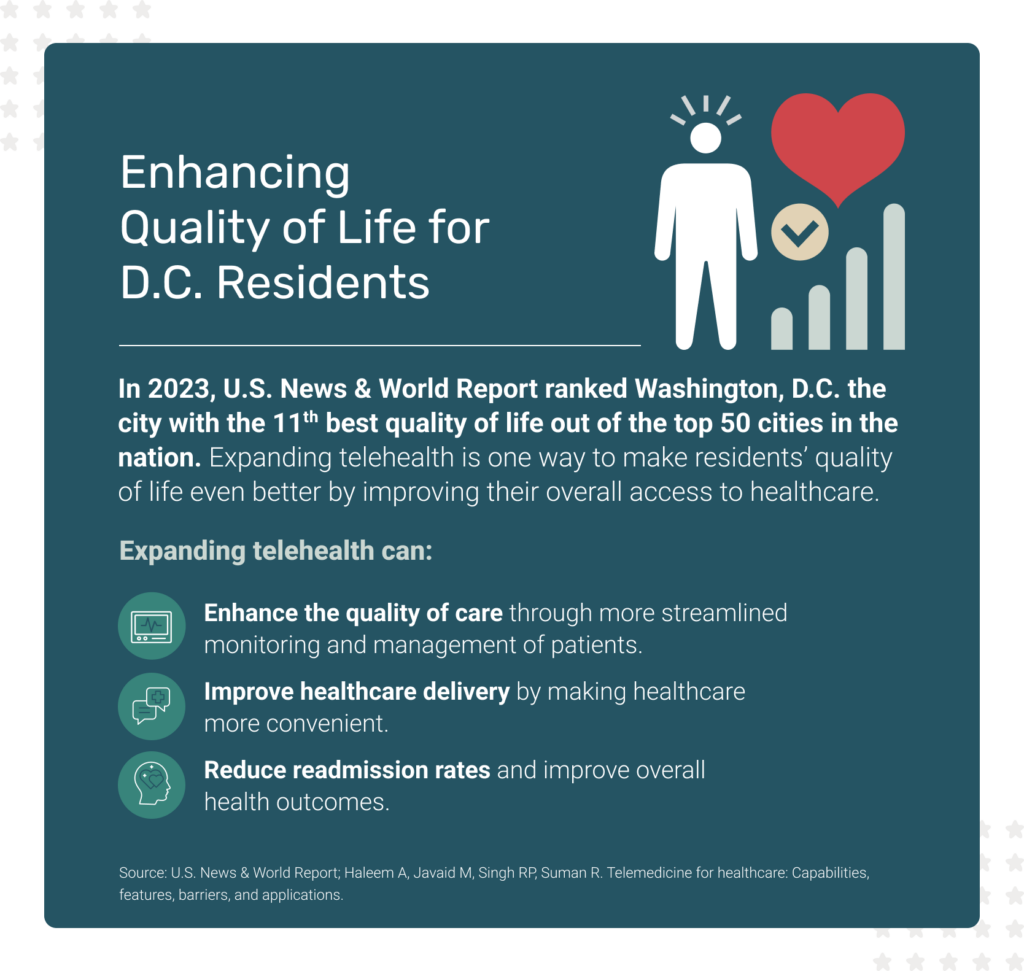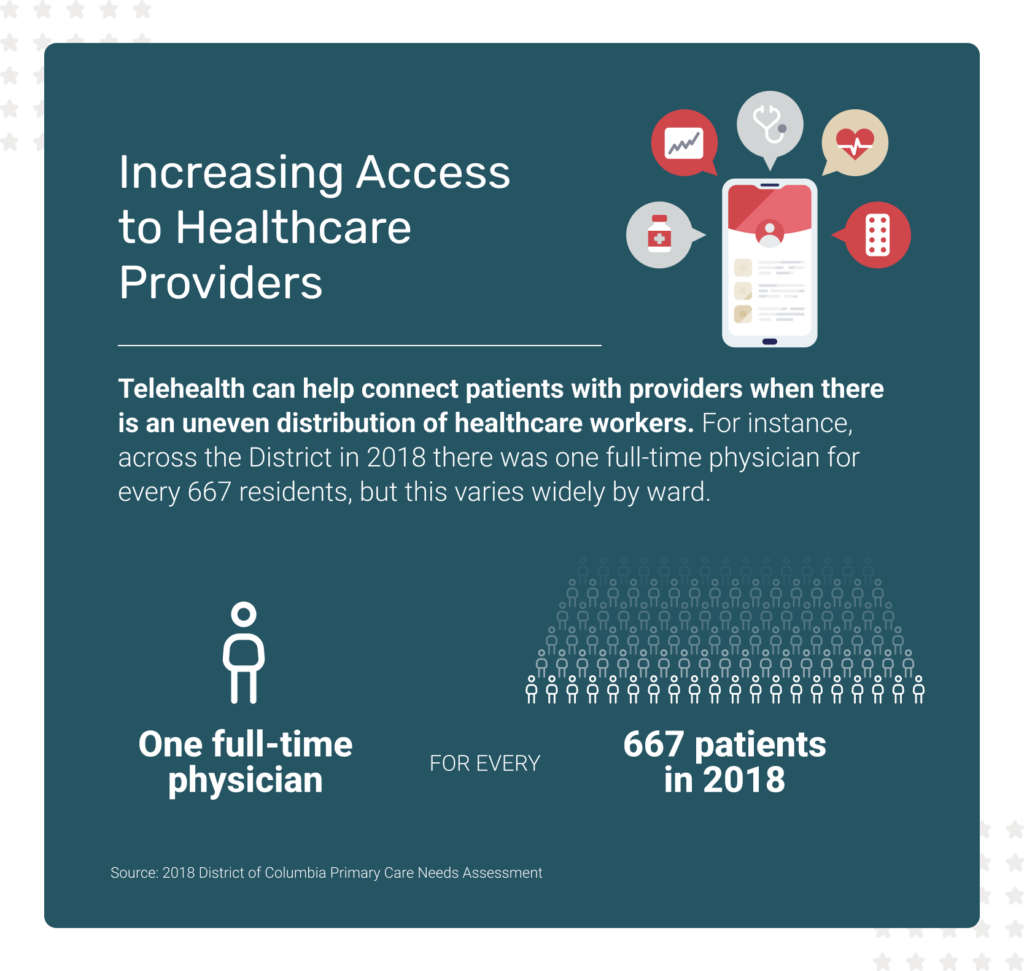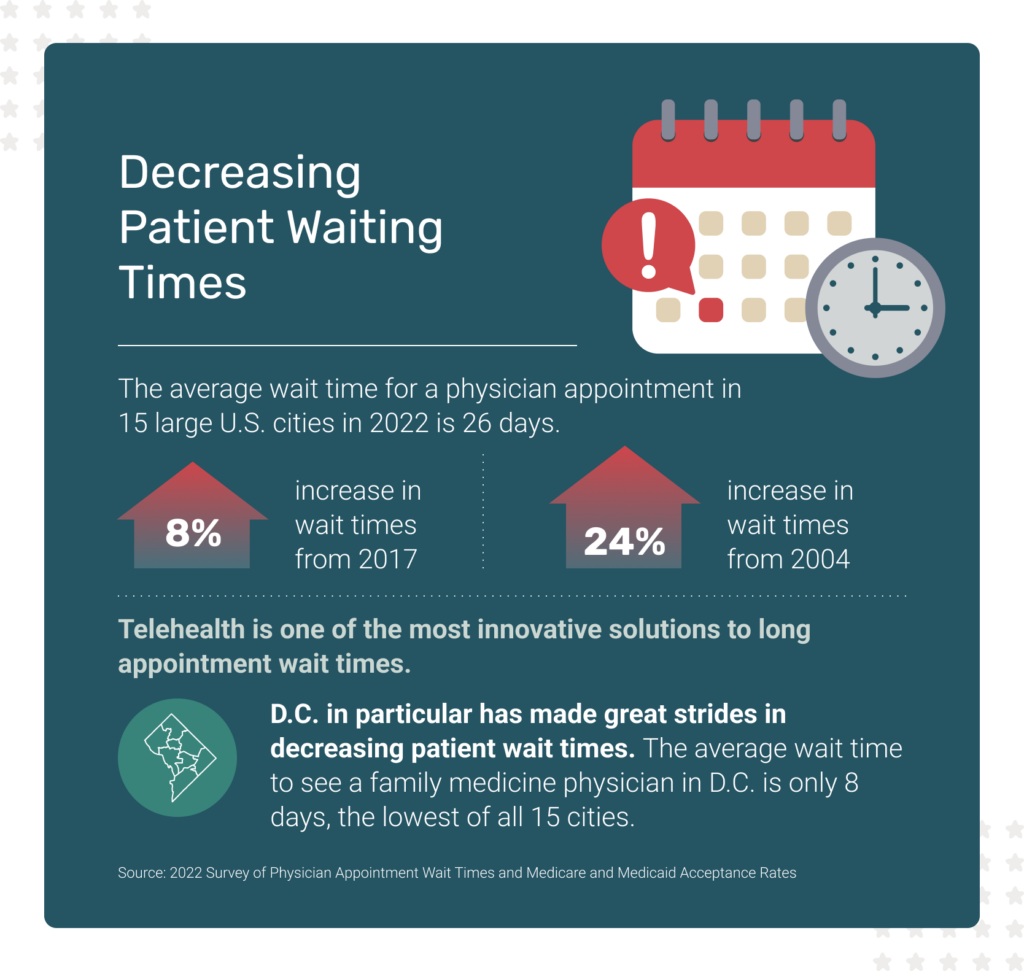Support Telehealth for D.C.: Our Healthcare Solution

Telehealth Addresses
Healthcare Inequity
in Washington, D.C.
Telehealth access is
Essential for D.C.
D.C. can continue to be a leader in telehealth. The District passed the Health Occupations Revision General Amendment Act of 2023, which was a step forward for patient choice and access to quality care. The legislation provides clear guidance to telehealth providers to meet patients where they are for the provision of services, including for establishing practitioner-patient relationships, so long as those services can meet the standard of care.
Telehealth is
Safe and Reliable

World-Class Care
Telehealth companies enable highly-trained healthcare providers to deliver top-tier healthcare services to patients.

Accountability to Patients
Telehealth companies are subject to regulatory standards and quality assurance protocols, ensuring that patient safety and data privacy are prioritized.
State of the Art Technology
Telehealth can help reverse stark racial disparities in health outcomes for D.C residents, helping increase the life expectancy of residents in Wards 7 and 8. Life expectancy is as low as 69 years in Ward 8, compared with 83 or more in Wards 2 and 3 — a difference of 14 years, according to the D.C. Center for Policy, Planning and Evaluation.




